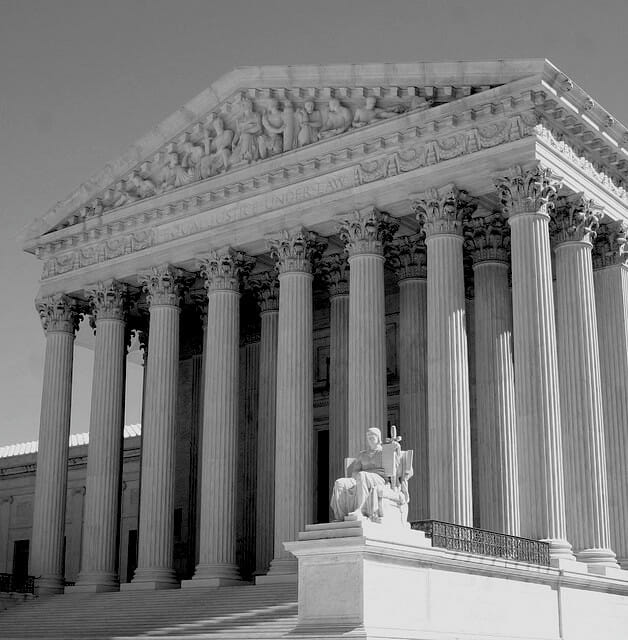Earlier this week, Federal Judge Kimberly Mueller denied a motion to declare unconstitutional marijuana’s listing as a Schedule 1 drug. Schedule I drugs have no recognized medical value, have a high potential for abuse, and cannot be safely administered even under a doctor’s supervision. To put it bluntly, no sane person believes any of those things. We are therefore disappointed in Judge Mueller’s ruling but it does have a silver lining, which I explain below.
We previously wrote about Mueller’s groundbreaking decision to take up the appropriateness of marijuana as a schedule I drug under the federal controlled substances act via an evidentiary hearing. Judge Mueller justified the hearing by concluding that “there is new scientific and medical information raising contested issues of fact regarding whether the continued inclusion of marijuana as a Schedule I controlled substance.” Mueller’s decision even to take up the issue was a big deal, as federal judges historically have ignored this issue in marijuana criminal cases.
 In her verbal ruling denying any rescheduling, JudgeMueller acknowledged that it has been 45 years since cannabis was originally scheduled as a Schedule 1 drug and the cultural, medical, and social landscape surrounding cannabis has changed significantly since then. Nonetheless, she held that because the motion to de-schedule challenged a federal statute enacted by Congress, the court “has to tread lightly.” Judge Mueller went on to hold that the Schedule I status of cannabis “passes muster under the ‘rational basis test’ and that it is up to Congress to change the statute.” The rational basis test is used to determine whether a federal law is “rationally related” to a “legitimate government interest,” and it is an incredibly easy test for a law to pass. We lawyers all study Constitutional Law in law school and so we all know that laws are almost never overturned under this test. Judge Mueller added that it was “not the court and not the time” to essentially overrule Congress.
In her verbal ruling denying any rescheduling, JudgeMueller acknowledged that it has been 45 years since cannabis was originally scheduled as a Schedule 1 drug and the cultural, medical, and social landscape surrounding cannabis has changed significantly since then. Nonetheless, she held that because the motion to de-schedule challenged a federal statute enacted by Congress, the court “has to tread lightly.” Judge Mueller went on to hold that the Schedule I status of cannabis “passes muster under the ‘rational basis test’ and that it is up to Congress to change the statute.” The rational basis test is used to determine whether a federal law is “rationally related” to a “legitimate government interest,” and it is an incredibly easy test for a law to pass. We lawyers all study Constitutional Law in law school and so we all know that laws are almost never overturned under this test. Judge Mueller added that it was “not the court and not the time” to essentially overrule Congress.
Judge Mueller has not yet published her written decision, but when she does, we will report back with more. We also do not yet know if Mueller’s ruling will appealed, but we are hoping that it will and we are also hoping that leading cannabis NGOs (like the NCIA, NORML, MPP, and the Drug Policy Alliance) will consider filing amicus briefs. If appealed at all, there is every reason to believe this case will eventually make it to the Supreme Court, and that is the silver lining here.
Judge Mueller based her decision to hear rescheduling evidence on a footnote from a 2005 Supreme Court case, Gonzalez v. Raich, where U.S. Supreme Court Justice John Stevens opened the door to a scientific review of treating marijuana as a Schedule I drug:
We acknowledge that evidence proffered by respondents in this case regarding the effective medical uses for marijuana, if found credible after trial, would cast serious doubt on the accuracy of the findings that require marijuana to be listed in Schedule I … Respondents’ submission, if accepted, would place all homegrown medical substances beyond the reach of Congress’ regulatory jurisdiction.
The Supreme Court will be far more likely to take it upon itself to toss out an irrational law than a lower court simply because it is the Supreme Court. So though Judge Mueller may not have had the appetite to go against the controlled substances act’s treatment of marijuana, we now have a case that may end up at the Supreme Court where real change is possible. There is also a possibility that this court ruling will actually spur Congress to do its job by acting rationally in removing marijuana as a Schedule 1 job. The improper scheduling of marijuana is NOT off the table.























